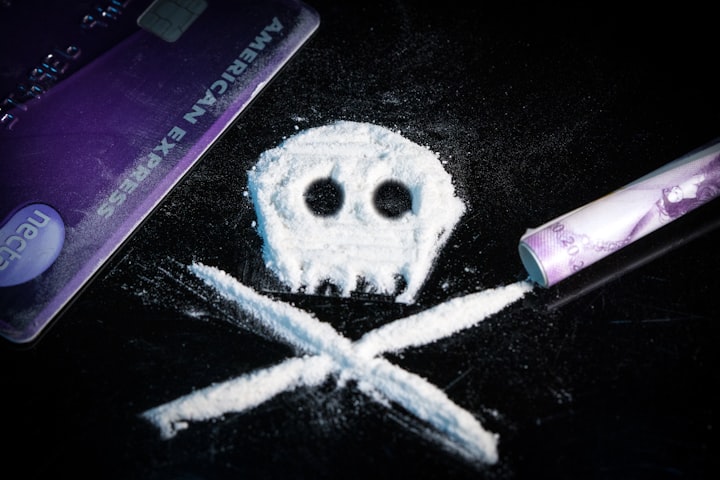The Controversial Debate: Should Drugs be Legalized?
The question of whether drugs should be legalized has sparked heated debates across the globe.

The question of whether drugs should be legalized has sparked heated debates across the globe. Proponents argue that legalization would mitigate the harmful consequences of the war on drugs, promote personal freedom, and generate significant economic benefits. However, opponents raise concerns about potential increases in addiction rates, public health risks, and the overall social impact. This essay explores both perspectives, aiming to shed light on the complex issue and contribute to the ongoing discussion.
Economic Benefits
One of the primary arguments in favor of drug legalization revolves around the potential for substantial economic benefits. When drugs are legalized, governments gain the ability to regulate their production, distribution, and sale, which can result in significant boosts to tax revenues. By establishing a legal framework for drug commerce, governments can implement taxation policies that generate revenue streams previously inaccessible through illicit drug markets.
Legalizing drugs would also lead to a reduction in the enormous costs associated with law enforcement, incarceration, and court proceedings related to drug offenses. Law enforcement agencies currently allocate considerable resources toward combating drug-related crimes, including investigations, arrests, and prosecution. These efforts not only incur financial costs but also strain the criminal justice system, overcrowding prisons and clogging court dockets. By redirecting these resources away from drug enforcement and towards other pressing issues, governments can achieve cost savings and enhance overall efficiency within the criminal justice system.
With the additional revenue and cost savings derived from drug legalization, governments would have the opportunity to invest in public health initiatives, education, and treatment programs aimed at combating addiction effectively. These programs could focus on prevention, harm reduction, and rehabilitation, providing individuals with the support they need to overcome substance abuse issues. Adequate funding for these initiatives would be crucial in addressing the root causes of drug addiction and promoting overall societal well-being.
Furthermore, the legalization of drugs would create job opportunities within the legal drug industry. As a regulated market, drug production, and distribution would require a workforce that adheres to safety standards, quality control, and proper record-keeping. This would generate economic growth and reduce unemployment rates as individuals find employment within the legal drug industry. The industry would encompass various roles, including cultivation, manufacturing, distribution, marketing, and research and development, creating a diverse range of job opportunities that contribute to the overall economy.
In addition to the economic benefits, drug legalization has the potential to alleviate some of the negative consequences associated with the illegal drug trade. The underground drug market is notorious for its violence, corruption, and lack of quality control, which pose significant risks to public safety. By legalizing drugs, governments can establish regulatory frameworks that prioritize consumer safety, quality control, and responsible usage. Legalization also eliminates the need for drug users to engage in criminal activities to obtain substances, reducing the potential for violence and enabling individuals to seek help without fear of legal repercussions.
While drug legalization is a complex issue with various considerations, proponents argue that the economic benefits, including tax revenues, cost savings, job creation, and improved public health outcomes, make it a viable approach worth exploring. It is important to note that implementing drug legalization would require careful planning, robust regulatory frameworks, and comprehensive public health strategies to ensure its effectiveness and mitigate potential risks.
Personal Freedom
Personal freedom is a fundamental aspect of individual autonomy and self-determination. Advocates for drug legalization strongly emphasize the importance of personal freedom in relation to drug use. They argue that individuals should have the right to make decisions about their own bodies, including the choice to consume drugs, as long as their actions do not harm others. By criminalizing drug use, these advocates argue that governments infringe upon personal liberties and extend their power over the lives of individuals.
The proponents of drug legalization suggest that regulating and legalizing drugs would actually enhance personal freedom. Legalization would allow individuals to access drugs through controlled and regulated channels, ensuring safer consumption and eliminating the risks associated with an unregulated black market. By removing the criminal element, drug legalization aims to create an environment where drug users are not stigmatized or marginalized, enabling them to seek help and support without fear of legal repercussions.
In addition to safeguarding personal freedom, drug legalization also enables governments to redirect resources toward harm reduction strategies, education, and providing resources for responsible drug use. By adopting a public health approach, authorities can focus on minimizing the risks and harms associated with drug use. This includes implementing harm reduction programs, such as needle exchanges, safe injection sites, and education campaigns to promote responsible drug use and reduce the spread of diseases like HIV/AIDS and hepatitis. The goal is to empower individuals to make informed decisions about their drug use, ensuring that they have access to accurate information, support, and healthcare services.
On the other hand, opponents of drug legalization express concerns related to public health and safety. They argue that legalizing drugs may lead to increased drug use, addiction rates, and related health issues. Some substances, such as opioids, have a high potential for abuse and can cause severe harm to individuals and communities. Detractors also worry that legalized drugs may be more accessible to vulnerable populations, including minors, leading to increased rates of addiction and associated problems.
Moreover, opponents argue that drug use can impair judgment and lead to increased risk-taking behavior, posing threats to public safety. They fear that an increase in drug use may contribute to accidents, impaired driving, and violence within society. Critics believe that maintaining strict drug laws serves as a deterrent, discouraging drug use and protecting individuals and society as a whole from the negative consequences of substance abuse.
In the ongoing debate surrounding drug legalization, finding a balance between personal freedom and public health and safety remains a significant challenge. Both sides recognize the importance of individual autonomy, but they differ in their approaches to achieving a society that balances personal freedom with societal well-being. Ultimately, the decision on drug legalization involves weighing the potential benefits of personal freedom against the potential risks to public health and safety.
Conclusion
The question of whether drugs should be legalized is a complex and multifaceted issue. While proponents argue for economic benefits and personal freedom, opponents stress the potential public health and safety risks. Striking a balance between individual liberty and societal well-being is crucial. Perhaps a more productive approach lies in focusing on harm reduction, education, and rehabilitation instead of punitive measures. By adopting evidence-based policies, governments can minimize the harm associated with drug use while addressing the underlying social and economic factors that contribute to substance abuse. Ultimately, the decision on drug legalization should be guided by thorough research, open dialogue, and comprehensive consideration of the potential consequences.
About the Creator
Christopher Harvey
I’m a long-time writer and musician. I love telling stories and writing poetry.






Comments (1)
It is interesting problem. the only good thing I can see about legalization is the fact that the government can have regulations over what is in the pill or powder, You would be less likely to die from the drug you are taking. I think drugs can cause mental illness, and take you away from reality. They also can influence you decisions in a negative manner. I know people who can not make it emotionally through the day without smoking pot two or three that day. That does not help a person take control of their life and handle pressure. I know I do not hold the popular opinion. It seems that it has already been decided in most states that pot is harmless. Some drugs make sex more exciting and can lead to unwise encounters. I understood th economic benefits but your mind has the most control over your quality of life. If your mind is working you can earn more money.